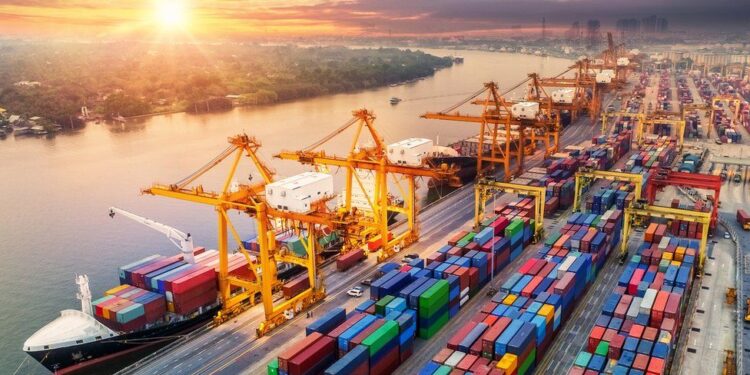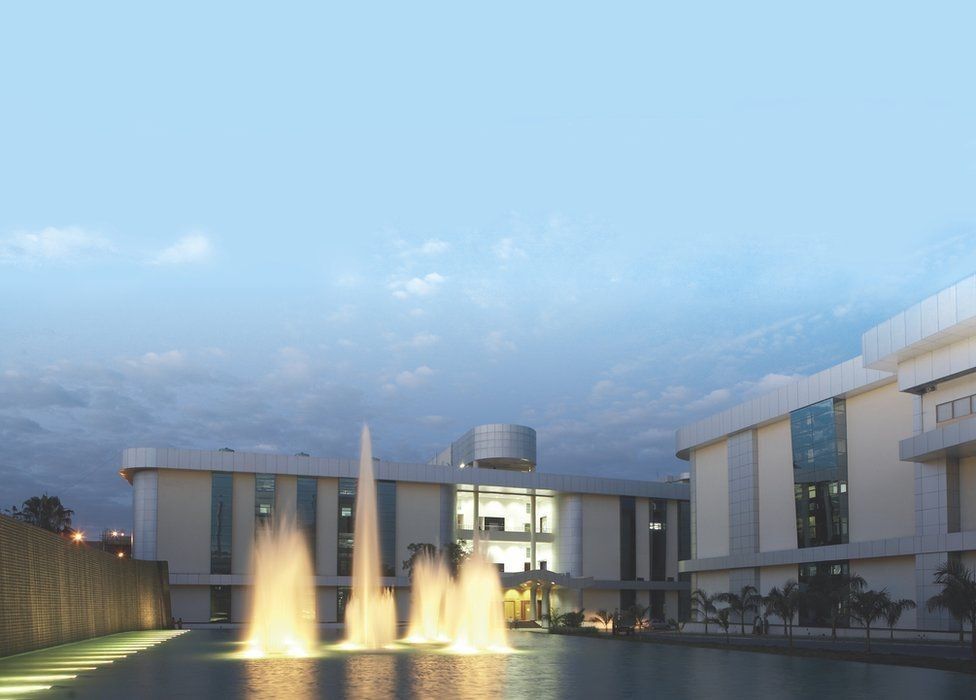The chances of an imminent UK-US free trade deal have been played down by President Biden, following talks with Boris Johnson at the White House.
Since Brexit, the UK has had the freedom to pursue its own trade deals.
So far, it has signed trade agreements with 69 countries and one with the EU. The majority are “rollover” deals – copying the terms of deals the UK already had when it was an EU member, rather than creating new benefits.
What is a free trade deal?
A free trade deal aims to encourage trade between countries by making it cheaper. This normally applies to goods but occasionally in services as well.
Making trade cheaper is usually achieved by reducing or eliminating tariffs. These are government taxes or charges for trading goods across borders. A car importer might have to pay a 20% tariff on top of the vehicle’s price, for example, to bring it into a country.
Trade agreements also aim to remove quotas (limits on the amount of goods that can be traded).
Trade can also be made simpler if countries have the same rules, such as the colour of wires in plugs. The closer the rules are, the less likely that goods need to be checked.
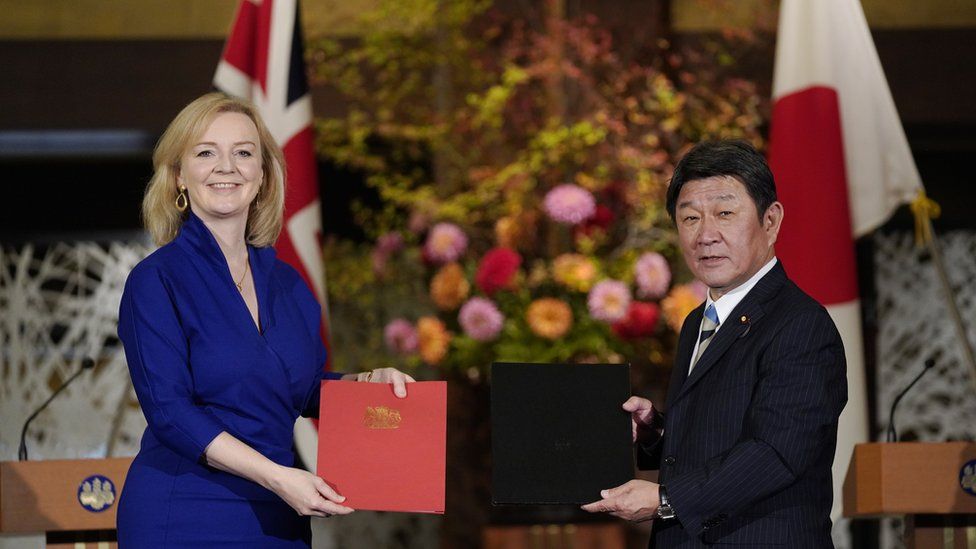 IMAGE SOURCE,EPA
IMAGE SOURCE,EPAWhy have tariffs and quotas at all?
While free trade agreements aim to boost trade, too many cheap imports could threaten a country’s manufacturers. This could affect jobs.
For that reason a government might choose to put tariffs on certain things. Tariffs on car imports, for example, could help protect local carmakers from cheaper vehicles coming in from abroad.
What about a US trade deal?
The US is already a significant UK trading partner, accounting for £1 in every £6 of British trade.
The government is considering whether to join an existing trade arrangement between the US, Canada and Mexico – known as the USMCA.
But such an arrangement would limit the UK’s ability to sell services. Economists say the overall gains from joining it could be less than 0.1% of the UK’s Gross Domestic Poduct (GDP) – a measurement of the size of the economy.
Some smaller deals have already been reached – such as the export of British beef to the US, after a ban of more 20 years.
What about the UK-Australia deal?
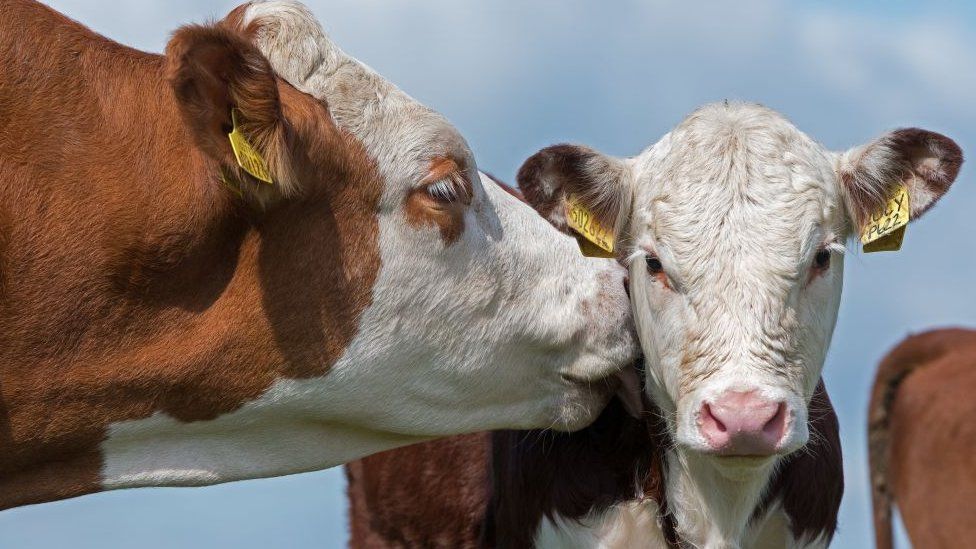 IMAGE SOURCE,GETTY IMAGES
IMAGE SOURCE,GETTY IMAGESThe Australia deal was the first trade agreement negotiated from scratch by the UK since it left EU and was announced on 15 June.
The UK government says the agreement means British products such as cars, Scotch whisky, biscuits and ceramics would be cheaper to sell to Australia.
However, UK farmers say the deal will mean they will be undercut by cheap imports, which will cost jobs.
But the UK government says the deal will contain protections for farmers, such as a cap on tariff-free imports for 15 years.
What does the EU-UK trade deal mean?
After Brexit happened on 31 January 2020, the UK and EU needed to decide the rules for their future trading relationship.
This was important because the EU is the UK’s largest and closest trading partner.
After months of negotiation – which went down to the wire – a UK-EU trade deal came into force on 1 January.
The deal prevented any tariffs and quotas being introduced – which would have made it more expensive to trade.
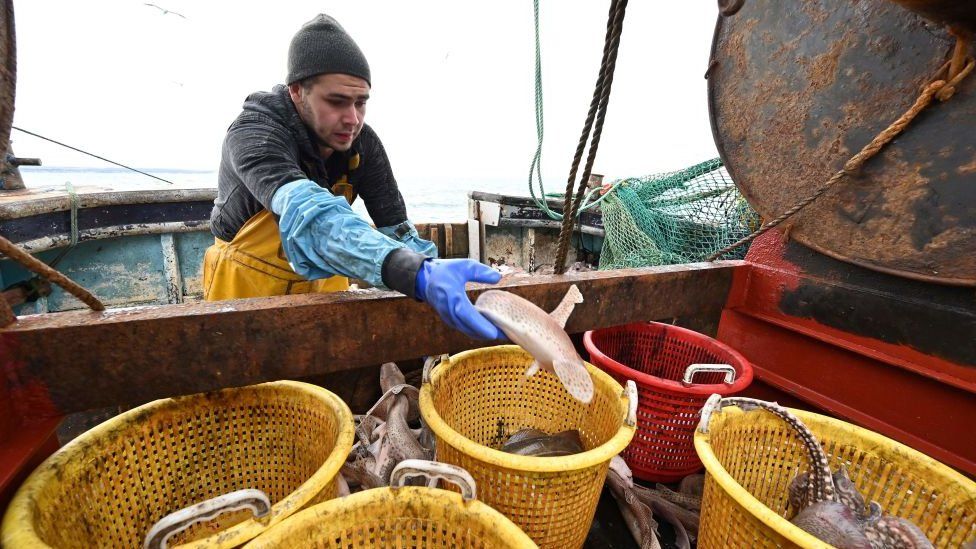 IMAGE SOURCE,GETTY IMAGES
IMAGE SOURCE,GETTY IMAGESBut not everything is the same as it was before Brexit.
As the UK no longer has to follow EU rules on product standards, new checks have been introduced.
Strict EU laws on animal products also mean some UK products can no longer be exported.
The deal also doesn’t completely eliminate the possibility of tariffs in future. Both sides will need to stay close to shared rules in areas like workers’ rights and environmental protection. If either the UK or the EU shift their rules too far, the other side could introduce tariffs.
What happened to the trade agreements the UK was already part of?
Before Brexit, the UK was automatically part of any trade deal the EU had negotiated with another country. At the time the UK left, the EU had about 40 trade deals covering more than 70 countries.
The UK has negotiated rollover deals with 66 of these countries.
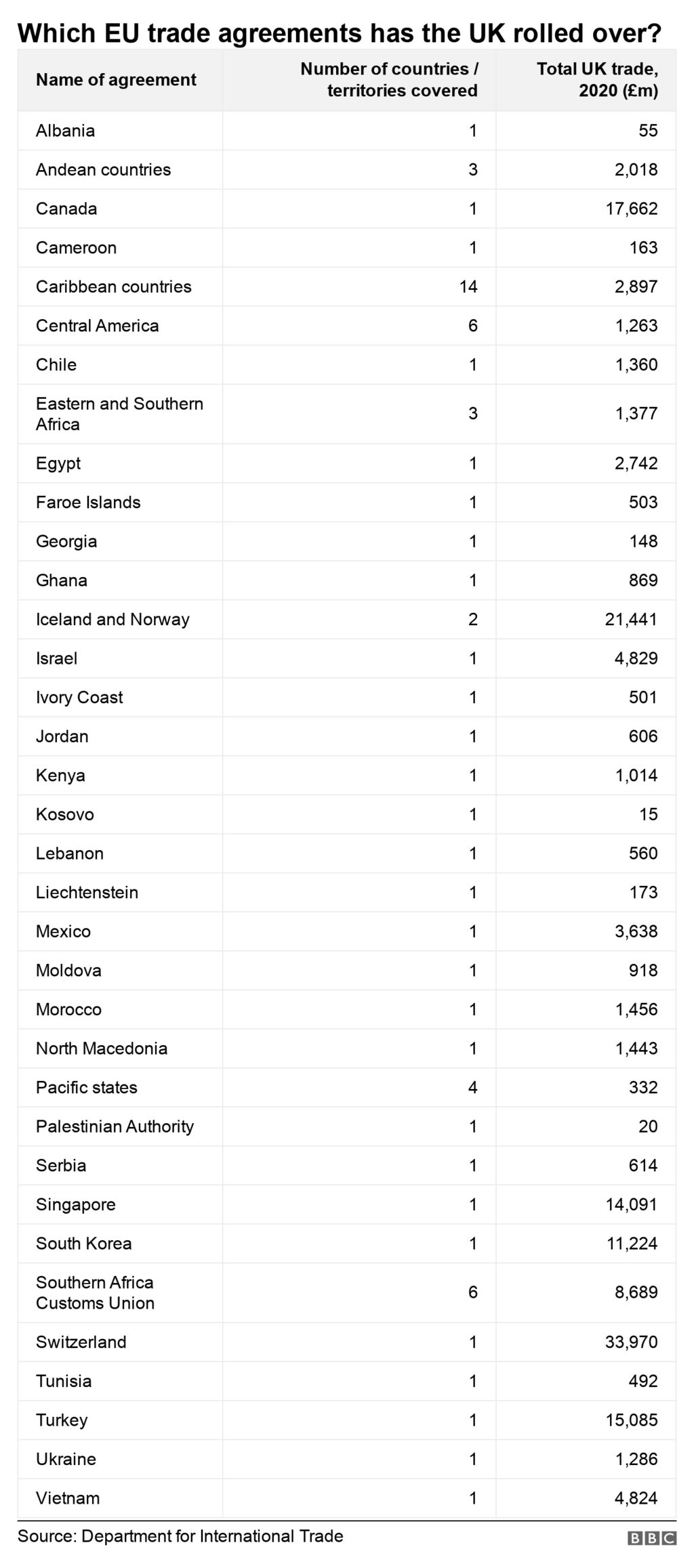
Any existing EU agreement that was not rolled over ended on 31 December with trade then taking place on World Trade Organization (WTO) terms until a deal could be reached.
Trading on WTO terms means importers face tariffs and extra paperwork. For example, a shipment of bananas arriving at Portsmouth from Ghana was charged a tariff of £17,500 in January. Since then, an agreement with Ghana has been reached.
What about other trade agreements?
The UK signed a deal with Japan in October 2020 – the first that differed from an existing EU deal. The total value of UK-Japan trade (imports and exports) was £31.6bn in 2019, or 2% of the UK’s total trade.
An agreement with Norway, Iceland and Liechtenstein, announced on 4 June, builds on the EU rollover deal that came into force on 1 January. The UK government says it will boost sectors such as digital and cut tariffs on UK farm products such as cheese and meat.
